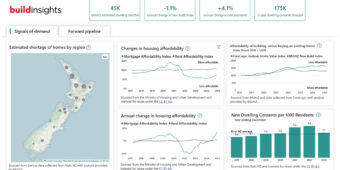LEARNINGS FROM BOARD COMPLAINTS
27 Jul 2021, LBP & Regulation, Learn, Prove Your Know How

Annually, around 1% of Licensed Building Practitioners will have a complaint made against them. Anyone can make a complaint about an LBP to the Building Practitioner Board, who then investigate and determine the seriousness of the complaint and decide on any penalties following a hearing
A complaint can relate to building work (including design work) or poor behaviour related to building work. The Board cannot hear complaints regarding payment disputes, or commercial or contractual disputes, including employment disputes.
To be able to make a complaint about an LBP, you need to ensure that:
- The person you are complaining about was an LBP when the conduct occurred.
- The conduct you are complaining about is covered by one or more of the ‘grounds for discipline’ listed in section 317 of the Building Act 2004.
- You can provide sufficient evidence to support your complaint.
- Your complaint is made on the approved form.
There are a number of grounds for discipline, but the majority of complaints are in relation to a lack of supervision, poor workmanship, not building to the plans or bringing the LBP scheme into disrepute.
Defining supervision
An LBP is needed for the design, supervision, and the physical carrying-out of any restricted building work. For design work, supervision could mean undertaking a thorough check of the drawings and documents once they have been completed by a non-licensed person. But on-site, supervision means the work must be closely supervised while it is being carried out, to the extent that the LBP who is completing the Record of Work (ROW) is satisfied that the work has been completed as per the plans and to a good level of workmanship.
This can be difficult if you, as the LBP, are not onsite when the work is being carried out – best practice is being ‘proximate’ to the work. Of course, if you know the skill level of the person doing the work and have seen them carry out similar work in the past, then the supervision can be a bit less constant.
However, remember – if the work fails at some point in the future, your name is on the ROW. Why would you want to jeopardise your licence because someone else did not do their job properly? There is a Registrar’s practice note on supervision which can be found at lbp.govt.nz under ‘For LBPs’ to provide guidance on supervision.
Workmanship woes
Poor workmanship is not something any LBP ever wants to be accused of. LBPs should be proud to put their name to their work, as one of the principals of the scheme is ‘you have been assessed as being competent at your trade or profession‘.
However, workmanship is a hard thing to define. If unsure, one approach is to ask yourself ‘If someone had carried out work to that level of workmanship on my house, would I be happy to pay for it?’ A guide to tolerances, materials, and workmanship can be found at building.govt.nz by searching ‘guide to tolerances’.
Complaints about LBPs not following the plans, or using the Building Consent Authorities (BCA) as quality assurance (“You tell me what’s wrong, and I’ll make sure I fix it for you…”) are becoming more prevalent, and the penalties handed out to respondents who have been found guilty of doing so reflects the Board’s stance on this type of complaint.
Bringing the LBP scheme into disrepute stems mainly from communication issues – not answering calls from clients who may have an issue with something you have or have not done, arguing with the client, or not complying with a lawful request from the Board are among the cases that we are seeing.
Failing to supply a ROW
And last, but definitely not least, is failing to provide a ROW. The main excuse for not providing the ROW seems to be trying to use it as a lever to ensure the final payment is made.
Using a ROW in this manner is not acceptable LBP conduct. The ROW should always be completed and given to your client and the BCA as soon as possible after the restricted building work has been completed. The average fine being handed down for this offence is $1,500, along with $500 towards costs. So ask yourself, is it really worth $2,000 not to provide it?
This article is an excerpt from Codewords Issue 101. Reading Codewords articles that are relevant to your licence class is a mandatory requirement for Licensed Building Practitioners. These questions can be answered through the LBP portal, online on the Under Construction website or recorded on the magazine, then provided at the time of renewal.
Register to earn LBP Points Sign in
1 Comment
Leave a Reply
You must be logged in to post a comment.




done